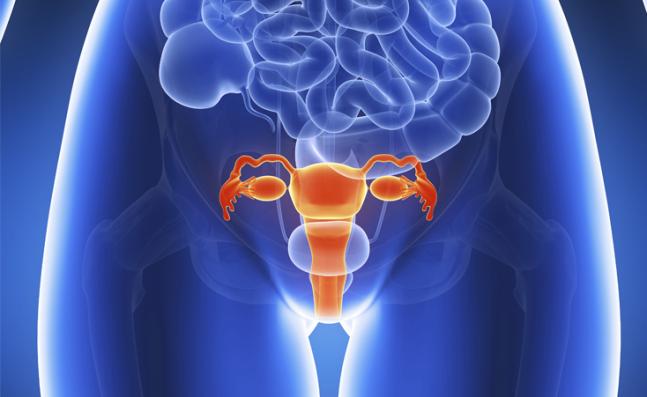Endometrial Cancer is the 4th leading cancer in women, with an incidence of 24 in 100,000. It has a very good prognosis when diagnosed early. The link between obesity and endometrial cancer has long been established, with the risks coming from endocrine and inflammatory effects of adipose tissue. Adipocytes produce aromatase, which converts ovarian androgens into estrogen. Estrogen, in turn, causes proliferation of endometrial tissue. Similarly, adipose tissue secretes inflammatory factors called adipokines. These play a role in insulin-resistance and the augmented endometrial proliferation. 1
Insulin-resistant states are being shown to play a more important role in many disease states. This insulin-resistant state seen in overweight people has been shown to be permanent, even in fasting states, and usually results from elevated levels of free fatty acids that are constantly released from fatty tissue. This prevents these tissues from absorbing glucose in energy metabolism. Insulin resistance has been seen to be more common in those who have central or abdominal adiposity. The resultant elevated insulin levels have been linked to changes in sex sterols in pre- and post- menopausal women. 2
An interesting study out of the UK showed that 34% of uterine cancers each year are related to being overweight or obese. In a meta-analysis, the risk of endometrial cancer was shown to be 32% higher in overweight women (defined as BMI= 25-30) and 2.5 times higher in obese women than in healthy weight women (BMI< 25). The association was greatest among women who never used OCPs. Additionally, meta-analysis showed the risk increased 81% per 5-unit BMI gained during adulthood. Waist circumference was also shown to be significant. Endometrial cancer risk was 2.2 times higher in women with the highest waist circumference compared to women with the lowest. 3
In one US study, , obesity was shown to account for 17-46 % of all cases of endometrial cancer. Overweight women had twice the risk of developing endometrial cancer than normal weight women. Obese women carry a 4 to 5 fold increased risk of developing endometrial cancer. A woman with a BMI greater than 32 was shown to have a 4-fold increased risk compared to a woman with a BMI under 23. Additionally, weight gain during adulthood has been shown to be an independent risk factor. Larger weight gains over a woman’s adult life have been shown to increase her risk. The length of time a woman remains overweight was also shown to be a risk factor. Women who gained more weight in their 20’s tended to develop endometrial cancer 10 years earlier than those who reported 5% or less weight change. Additionally, it has been noted that the more obese a woman is, the higher her risk of mortality from the endometrial cancer. It is not clear, however, if this is strictly related to the cancer or other comorbidities play a role. 4
The statistics regarding the risk of endometrial cancer in the face of obesity are quite alarming. This is especially true when we calculate the rising rates of obesity in the US and around the world. This is another disease that can be prevented by weight loss. Unless, we curb the rising tide of obesity, we can expect to see more of these cancers. While many feel the answer is simply diet and exercise, we need to become better at counseling our patients to do this. In this regard, we are failing.
- http://www.medscape.com/viewarticle/757041
- http://cebp.aacrjournals.org/content/11/12/1531.full.pdf+html
- http://www.cancerresearchuk.org/cancer-info/cancerstats/types/uterus/riskfactors/uterine-cancer-risk-factors
- https://www.glowm.com/section_view/heading/The%20Epidemiology%20of%20Endometrial%20Cancer/item/236
 Copyright secured by Digiprove © 2019 Linda Girgis, MD, FAAFP
Copyright secured by Digiprove © 2019 Linda Girgis, MD, FAAFP


